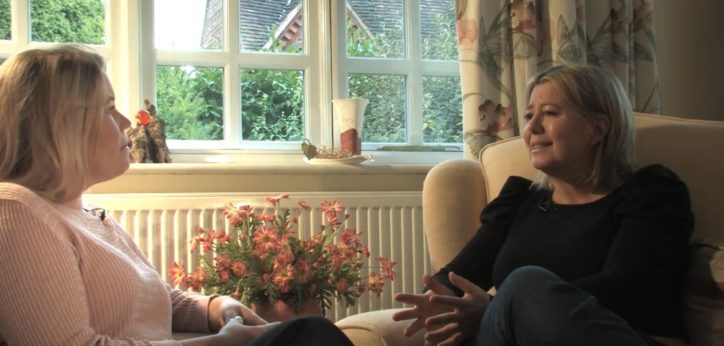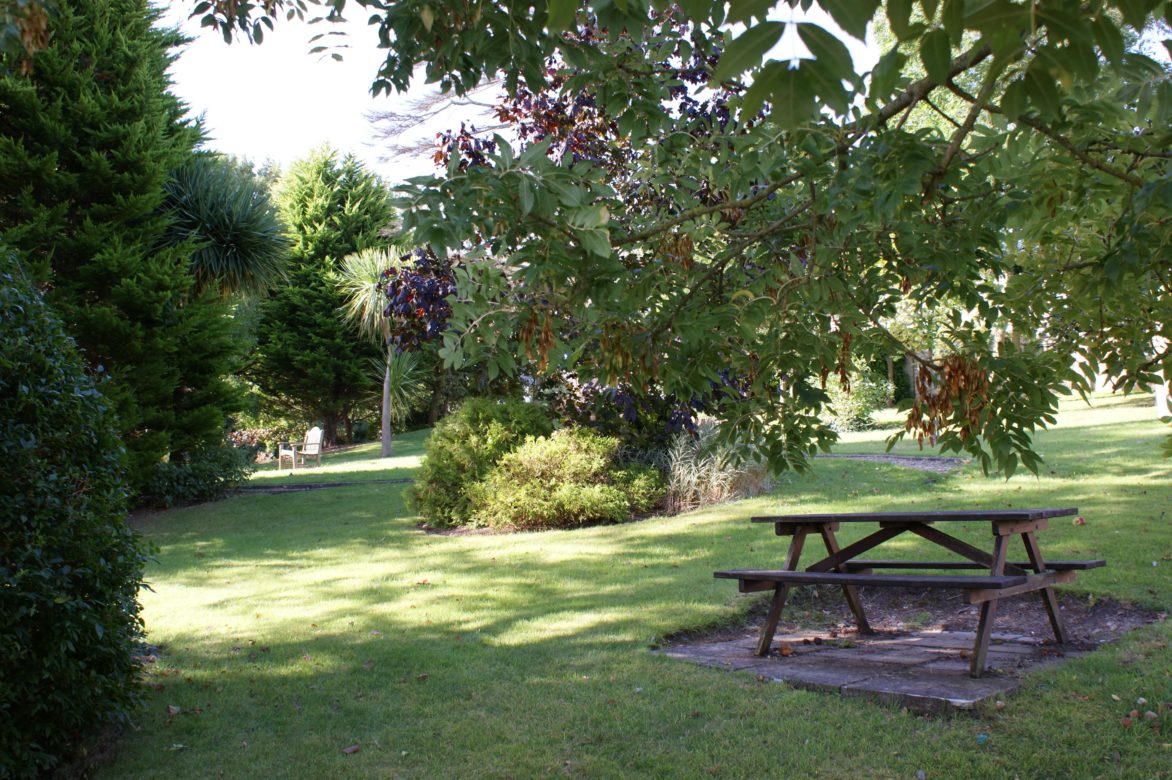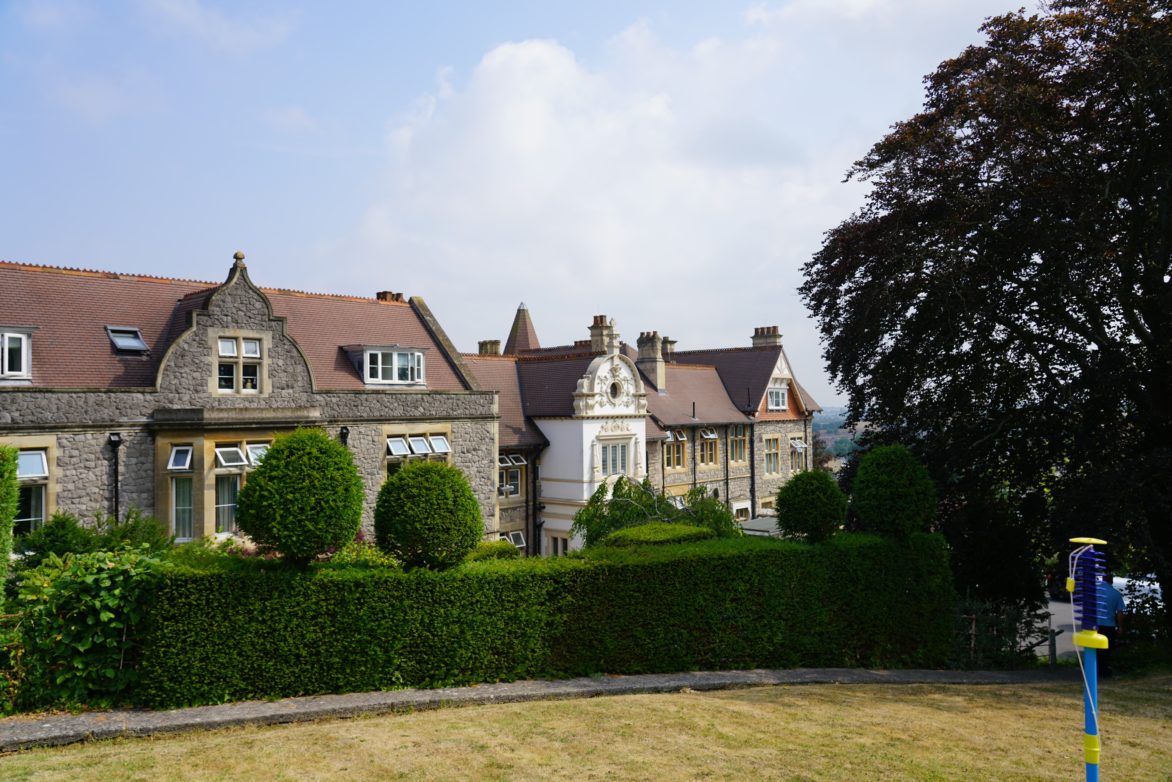
We are a 12 Step-based Treatment Centre in the UK
We are proud that Broadway Lodge was the first centre in Europe to offer 12 Step-based treatment which, at the time in the 1970’s, was seen as pioneering.
The 12 Steps are a fundamental part of your recovery that will help you through the process of change and are particularly helpful after leaving treatment for sustaining your recovery. Understandably you might have questions about certain aspects of it and how it works. For example, “do I need to be religious?” or, “I’m not a spiritual person, is this for me?” or, “how successful are the 12 Steps?”. Here below, we’ll guide you through what the 12 Steps are, what they mean to you and how we approach them.
On this page we cover the following:
- A brief history of the 12 Steps
- What are the different 12 Steps?
- How we use the 12 Steps at Broadway Lodge
- Mythbusting: Do I need to believe in God?
- How to get help
If you need help, we’re here to listen. Contact us online or call us on 01934 812319
Contact us onlineA brief history of the 12 Steps
The 12 Steps may of course seem daunting at first but there’s a reason why they are still used almost 100 years since they were founded.
In 1935, New York stockbroker Bill Wilson embarked on a journey to overcome alcoholism with the guidance of the Oxford Group, a Christian fellowship. Though not specifically focused on addiction, the Oxford Group provided Bill with spiritual values that transformed his life.
Inspired by his own transformation, Bill began helping others in active addiction and found it to be a crucial part of his own sobriety. One of his first success stories was Dr. Bob, a struggling alcoholic surgeon. Together, they started assisting more individuals in achieving sobriety.
By 1939, 100 people had found recovery through the three groups founded by Bill and Dr. Bob, which were based on the spiritual principles that had helped Bill get sober. That same year, they published their textbook, Alcoholics Anonymous (AA), which introduced their philosophy known as the “12 Steps of recovery.” The AA Fellowship continued to grow, with the first AA group in Britain forming in 1947.
Today, the 12 Steps is global. Many different Fellowships around the world have adopted these same principles to support individuals in finding and maintaining recovery from addiction to various substances and behaviours.
What are the different 12 steps?
There is long-standing evidence that practicing the 12 Steps is one of the most effective means of establishing and maintaining recovery. However, the original wording of the 12 Steps can be quite difficult to understand, so we’ve created an easier-to-understand version below.
Hope
Step 2
Realisation: I’m willing to ask for help and see things from another perspective.
Theory: In order to engage in a course of addiction recovery, we must have hope of success. If there’s no hope, why try? A way to instil hope is to realise recovery is not a question of ability, but rather persistence and application.
Faith
Step 3
Realisation: I will let go of control and seek contentment.
Theory: This stage of action is to begin to employ the recovery skills being learned. You can seek out help, but it’s necessary to utilise it. Your job is to become willing to do the right thing. A simple way to view the next right thing is don’t engage in your behaviour. Have faith it will work.
Integrity
Step 5
Realisation: I take responsibility for my actions.
Theory: If we have truly done a thorough job of introspection and evaluation of our assets and shortcomings, do you have the integrity to own up to it? It can be very difficult to be open and honest about your past behaviours. You will need to accept a dose of humility.
Humility
Step 7
Realisation: I will ask for help to change.
Theory: You move further into action, becoming willing to let go of our old behaviours. Now you ask for help in actually letting go. Can you learn to forgive yourself?
Forgiveness
Step 9
Realisation: I make amends.
Theory: Asking forgiveness of those we have intentionally or unintentionally injured is the order of the day. You try to correct those injuries through action not just words. It is highly recommended that guidance and help is utilised. Asking forgiveness is not a gift to the other person but an act of kindness to you.
Acceptance
Step 10
Realisation: I pay attention to my motives and the effects of my actions.
Theory: To be human is to make mistakes. Hopefully your journey has led you to this point where we can readily admit mistakes and accept yourself for being imperfect. We must also learn not to judge others but accept them for who they are, not our vision of who they should be.
Knowledge and awareness
Step 11
Realisation: I stay tuned to who I am and what I can do.
Theory: You search and become aware of following a path, being aware of your purpose in life and actively pursuing it. Be aware, do not be caught up in the rush of life; make a conscious effort to do the right thing and be at peace.
Service and gratitude
Step 12
Realisation: Having changed, I can now reach out to others who feel stuck.
Theory: Having brought about a personality change sufficient to remain in recovery, you are empowered to demonstrate the new principles by which we live, in our daily lives through example. You seek out and are available to help others in need.
How we use The 12 Steps at Broadway Lodge
The 12 steps underpins our treatment programme but it’s just one element of the work you will do at Broadway Lodge. The comprehensive therapeutic schedule means that you will be involved in so much more than solely working through the 12 Steps. The steps are specifically designed to address your addiction, but our counsellors also incorporate different styles of therapy to help you work through other issues and past traumas. Our goal is to support your healing journey from all angles.
We’ll teach you about the 12 Steps through workshops, lectures, group therapy, one-on-one counselling, education, and assignments. We also encourage you to attend local 12 Step Fellowship meetings, such as Alcoholics Anonymous (AA), Narcotics Anonymous (NA), Cocaine Anonymous (CA), and Overeaters Anonymous (OA).
To begin with, Step 1 will be your starting point, focusing on the principle of honesty that allows us to delve into the impact of your addiction on both yourself and others. This process requires honest self-appraisal without denial or defensiveness. Our counsellors will support you to help break down any defenses and guide you through this process. By the time you complete Step 1, being honest will become so ingrained that it becomes difficult to resort to dishonesty again.
After working on honesty, we will move on to Step 2, which centers around the principle of hope. Step 3 focuses on faith, Step 4 on courage, and so on.
Introducing you to the 12 Steps during treatment not only lays a strong foundation for your recovery but also prepares you to continue working on these steps after leaving Broadway Lodge. We want you to feel empowered and confident in joining a Fellowship of your choice, such as Alcoholics Anonymous, Narcotics Anonymous, Cocaine Anonymous, or Gamblers Anonymous.
Mythbusting: Do I need to believe in God?
One of the many questions we get asked a lot, is “will the 12 Steps work for me if I don’t believe in God?”. The answer is always “yes”. Many have done so already and many will continue to do so. It’s important to remember that the 12 Steps is not about religion, but rather a spiritual programme that anyone can embrace and thrive in.
The 12 Steps originated in America where, at the time in the 1930’s, Christianity was a popular following so it was common for people to work through the 12 Step process using their faith-based religion and seeing God as their Higher Power. This is why ‘God’ appears in the original wording of the 12 Steps. However, the Fellowship has developed for almost 90 years since then and you can apply your own interpretation of what your Higher Power is now, whether a god or something else entirely.
Higher Power is a belief in a power greater than ourselves and this spiritual notion is important in recovery and when coping with difficult circumstances. It helps us to conquer challenges in life. What you assign as your Higher Power is an individual choice and for people who believe in a God then Higher Power can be easy to determine. For those who do not then your Higher Power will usually naturally come to you through the rehab journey and talking.
Nature can be used as an example of a Higher Power. Nature is a powerful force which is all around us. If you find peace, wonder and relaxation in watching the sunrise whilst walking through the park, feeling the elements of the weather against your skin whilst standing on headland or admiring animals and the flora and fauna whilst hiking through a forest, you may feel a spiritual connection. If so, nature can be used as your guiding force and your Higher Power.
Alternatively, music could be the force where you feel a strong spiritual connection. It may allow you to feel powerful emotions and help you to relax in order to help you through difficult challenges.

Contact us
Get help
If you have a question or if you would like to find out more about our treatment packages, private admission, prices and staying with us, you can contact us confidentially through calling us on 01934 812319, emailing hello@broadwaylodge.org.uk or sending us a message and we will respond as soon as we can.
Contact us online

Discover what addiction meant to Rachael and how she overcame her fears with the help from the people at Broadway Lodge.
See more stories










